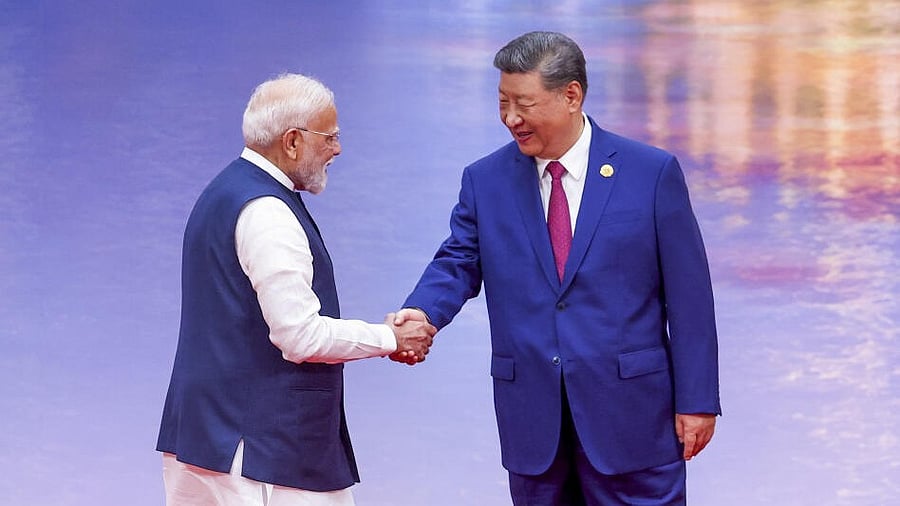
Prime Minister Narendra Modi with Chinese President Xi Jinping during the Shanghai Cooperation Organisation (SCO) Summit at Tianjin Meijiang Convention Centre, in Tianjin, China.
Credit: PMO via PTI Photo
Prime Minister Narendra Modi’s four-day trip abroad was at once about bolstering bilateral relations and building multilateral fellowship. While the bilateral dimension came into focus in his talks with the leaders of Russia, China, and Japan, his participation in the Shanghai Cooperation Organisation (SCO) summit in Tianjin underlined the importance of institutional synergy. Both kinds of engagement are important at a time when the global order is changing in uncertain ways.
India has reasons to be content with the proceedings and the outcome of the SCO summit. The convergence of Chinese President Xi Jinping, Russian President Vladimir Putin, Modi, and a number of other leaders may have sent a message of solidarity in a fractured world, though many member-nations have disparate views and interests. The Tianjin Declaration, adopted by the summit, also underscores many commonalities.
The declaration reflected India’s concerns over terrorism – it called for bringing to justice the perpetrators and sponsors of terrorist attacks. It is a move forward for India, considering that the joint statement at the SCO Defence Ministers’ Meeting in China two months ago had made no mention of the Pahalgam carnage. India had refused to sign that declaration which, instead, took note of terrorist activities in Pakistan’s Balochistan. The Tianjin Declaration has also made a reference to terrorism in Balochistan. The important takeaway for India is that terrorism was raised as a concern and “double standards” on the issue were noted at a forum where Pakistan and its supporter China were present. While the declaration did feature parts India has not been in full agreement with, a sense of camaraderie was on display. It is also significant that India shared a “deep concern” over Israeli actions in Gaza and condemned the military strikes on Iran by Israel and the US.
The summit also saw a strengthening of ties between India and Russia. The optics of Modi travelling with Putin in a car has a special significance when President Donald Trump is seeking to penalise India for its relations with Russia. It should also be noted that the Prime Minister reaffirmed India’s established relations with Japan before he went to China. This engagement is significant because Japan is an ally of the US and a member of the Quad grouping, which has the US, Australia, and India as the other members and seeks to contain China’s influence in the Pacific region. Bilateral and multilateral lines get entangled in a world where relations are in a flux. The best countries can do is to leverage the advantages gained through both approaches.
